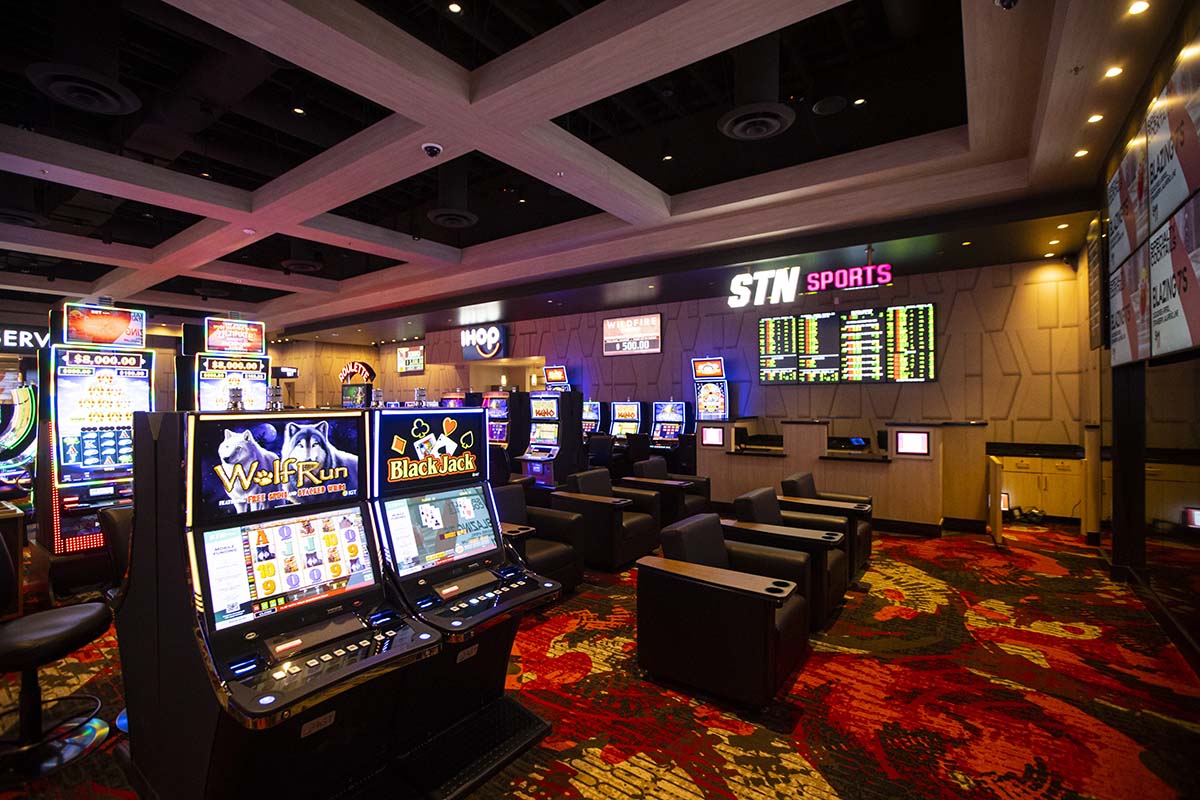
Casino entertainment have long been a staple in human culture, offering not just entertainment but a captivating reflection of our hopes, wishes, and anxieties. From the spinning reels of a slot machine to the strategic gameplay of poker, these games represent a variety of human feelings and incidents. At their core, casino games are more than a chance to earn cash; they are a snapshot of life itself, where risk and reward intertwine and fate can change in an moment.
As players gather around tables or sit in front of glowing machines, they participate in a tradition that transcends mere playing. These games echo our innate desires for relationships, thrill, and the pursuit of luck. BJ88 Casino They also unveil deeper truths about human nature, such as our relationship with luck and the thrill of risk. In exploring casino games, we reveal not only the nuances of play but also the rich tapestry of the human journey, showcasing our woven narratives of aspiration and reality.
The Mind Behind Gambling
Gambling is deeply rooted in human psychology, appealing to various feelings and wants. The excitement of taking risks is a core aspect that attracts participants, be it it’s excitement of spinning a roulette wheel or the anticipation of drawing a winning card in poker. This rush of adrenaline is often compared to other forms of thrill, as the uncertainty of outcomes triggers a distinct psychological response. Gamblers often find themselves entranced by the possibility of striking it rich, leading to an almost magnetic draw toward gambling games.
Another, a crucial component of the psychology behind gambling is the concept of optimism and ambition. Participants often indulge in dreams of financial freedom and the opulent lifestyle that can follow winning. This hope fuels their ongoing participation in casino games, as it provides a sense of meaning and the conviction that a transformative win could be just one wager away. The narrative of overcoming odds and finding success resonates with many, strengthening their commitment to play and engage with these games.
Finally, social dynamics play a significant role in gambling psychology. Gambling venues are designed to promote social interaction, where gamblers gather to share the journey of wins and losses. This communal aspect not only amplifies enjoyment but also influences behavior, as individuals often mimic the actions of others in their vicinity. The collective approval found in shared excitement can enhance the emotional experience, making casino games a mirror of not just personal desires but also shared involvement within the gaming community.
## The Dual Nature of Risk and Reward
Gambling games embody the delicate balance between danger and reward that resonates profoundly with human psychology. The rush of placing a bet is often accompanied by a jolt of energy, as participants are confronted with the chance of a huge payout, yet conscious of the possibility to lose. This dual experience reflects a fundamental aspect of life: the decisions we face often come with intrinsic risks, and the chase for gain can drive us to embrace risks we might not normally consider. In this way, casino games echo real-world choices, enticing gamblers to risk not just their funds, but also their dreams.
The allure of jackpot prizes and payouts fuels a wave of hope, inspiring gamblers to envision a more promising future that could arise from a lucky spin of the roulette or flip of a card. This hope can compel individuals to engage in riskier behaviors, encouraging them to take greater risks in search of financial gain. However, just as in life, the results of these risks can lead to both triumph and loss. The narratives of both jackpot winners and those who have faced losses everything at the tables demonstrate the unpredictable nature of luck and its consequential repercussions on our futures.
Ultimately, the experience of engaging with casino games serves as a potent reminder of the human condition. Every game played is loaded with the tension of uncertainty, as gamblers weigh the rewards against the dangers. This balance not only highlights the excitement that comes with betting but also reveals the weaknesses that come with the longing for more. As we navigate the challenges of decision-making and consequence in both the gambling world and in life, we find that the quest for gain shapes our sense of self and lives in deep ways.
Community and Solitude in Casino Culture
Gambling environment is a distinct blend of communal interaction and individual pursuit, reflecting the dualities of individual experience. Gamblers often gather around games, sharing in the excitement of the action, rejoicing in wins, and sympathizing over losses. This communal aspect is crucial, as it fosters a sense of belonging and camaraderie among diverse groups of people. Regular attendees to gaming establishments may form friendships and establish routines, turning the casino into a second home where they experience connected to a greater community of players.
However, the allure of casino activities can also result to isolation. As players become engrossed in the excitement of gambling, they may isolate from personal relationships or neglect to interact with the environment outside the gaming space. For some, the pursuit of a jackpot can distract from genuine connections, leading to isolation. The situation of being surrounded others yet experiencing solitary is not rare, as the focus shifts from collective fun to the individual stakes of each player’s journey.
This interaction of community and isolation creates a vivid mosaic that defines gaming culture. It highlights the complexity of human interactions, where happiness and despair exist together. Casinos serve as both a refuge for social engagement and a stage for individual challenges, demonstrating how intimately connected our desire for connection and the individual quest for fortune can be. In navigating this landscape, gamblers confront their own narratives—seeking both the rush of the game and the companionship of fellow gamblers, ultimately reflecting the broader spectrum of human experience.